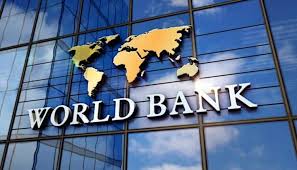Somalia’s economy maintained strong performance in 2024, with a solid growth rate of 4.0 percent, according to the 10th Edition of the Somalia Economic Update released by the World Bank. The growth was largely driven by better agricultural production, increased private consumption, and steady remittances from abroad. Falling global commodity prices also helped by reducing inflation pressures.
The World Bank report, released on Monday, shows that Somalia made significant strides last year, but faces new challenges in 2025 due to rising uncertainty about international aid. The country, which is still rebuilding from decades of conflict, depends heavily on foreign assistance for basic services and development efforts. This heavy reliance now poses a risk to future growth.
“It is important for Somalia to continue building strong economic institutions that can support long-term development,” said Kristina Svensson, the World Bank Country Manager for Somalia. “The country must focus more on raising its own revenue and building a stable economy that can stand on its own.”
According to the World Bank, Somalia’s inflation dropped below 6 percent in 2024 due to lower prices of imported goods and better supply conditions. The federal government also reported a small budget surplus, thanks to careful spending and improved tax collection. However, many services are still funded through donor support, which may decline in 2025 and beyond.
Somalia is currently benefitting from economic reforms under the Heavily Indebted Poor Countries (HIPC) Initiative and continued post-HIPC programs. These reforms are bringing positive change, but the country remains fragile. Growth in 2025 is likely to slow slightly, with projections suggesting real GDP will remain between 3 and 4 percent in the medium term.
There are also concerns about climate change impacts, political instability, and security risks. All of these remain serious threats to Somalia’s growth prospects. Despite these challenges, the report encourages Somalia to continue implementing reforms that will lead to more stable public finances, a stronger private sector, and increased job opportunities.
Somalia’s government is now focusing on sectors like digital technology, agriculture, fisheries, manufacturing, and energy as part of its National Transformation Plan (2025–2029) and Centennial Vision 2060. These areas are expected to attract investment, create jobs, and help diversify the economy.
The report notes that Somalia’s long-term stability and development rely on the government’s ability to raise more money internally. This means that the country must grow its private sector, create more jobs, and improve domestic tax systems.
According to Abdoulaye Ouedraogo, the World Bank’s Country Economist for Somalia, “Revenue collection has shown some progress, but Somalia still has one of the lowest domestic revenue-to-GDP ratios in the world. The big gains will come from expanding the tax base and reforming customs.”
To boost revenue, the report recommends the implementation of income and sales taxes across all regions, expanding tax coverage, and continuing customs modernization. It suggests aligning customs rules with those of the East African Community and increasing digital systems to improve transparency and efficiency.
Despite limited resources, Somalia has made progress in building the foundation for a more stable economy. But the road ahead will require tougher reforms, especially in public finance management, job creation, and infrastructure development. By building a reliable tax system and supporting private businesses, the country can reduce its reliance on donors and ensure more sustainable growth.
The Somalia Economic Update provides a clear picture of recent developments, challenges, and opportunities. This edition pays special attention to domestic revenue mobilization, a crucial area for Somalia’s economic independence.
As Somalia moves forward, strengthening its institutions, supporting private enterprises, and reducing fragility will be key to achieving long-term goals and national transformation.
